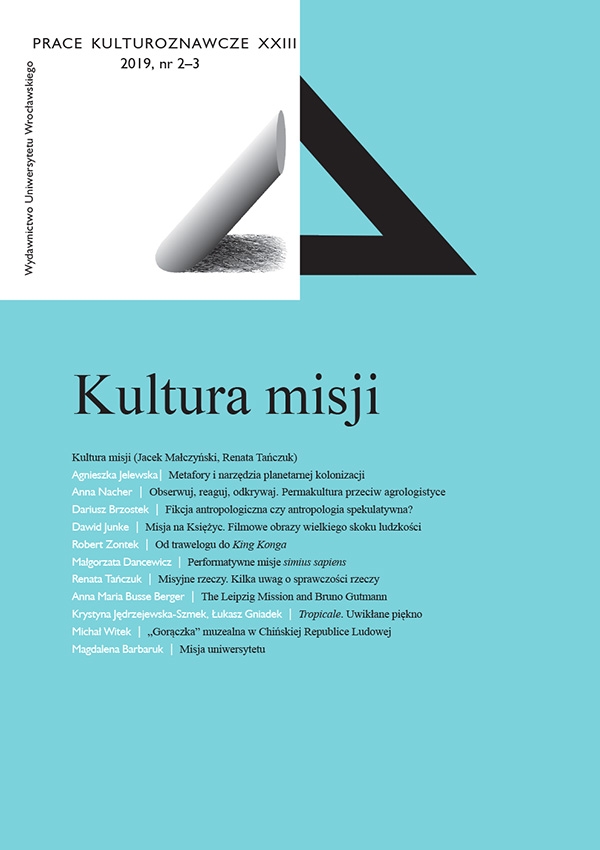

Artykuły

History, nation and nationalism: The evolution of the mission of Chinese museums in the context of the contemporary museum “fever” in the People’s Republic of China
The peculiar “museum boom” in the People’s Republic of China PRC attracts much attention from Western researchers. This phenomenon is undoubtedly linked to the cultural shift towards national and cultural heritage promoted by the authorities, which in turn is an important element of the nationalist political ideology. This policy is becoming more and more important in the last three decades of the reform and opening-up period. Museums, like the concept of a “nation” and the nationalist ideology, came to China from the West at about the same time and in a similar political and intellectual context, which meant that the museums quickly became entangled in politics and propaganda. This situation, strengthened even further in the communist period, led to the creation of a very specific form of state-controlled museology. Nowadays, museums and associated thematic parks play a key role in the strategy of developing the culture of the Chinese government, the project of “management and social order.” In this context, these institutions form part of an important mission entrusted to them by the party — the mission of building a new cultural and historical narrative serving the needs of the “new China.” The mission of various types of museums in contemporary China is shaped by overlapping political, economic, ideological and even moral dimensions. It is an important element of the soft power of modern China, which is also an important global symbol of China, attracting millions of foreign tourists a year. In this dimension, the museum’s mission is significantly expanded, it becomes a tool for building an international position and prestige. The aim of the article was to look at the history of Chinese museums in the 20th century in the context of continuity and changeability of the missionary dimension of their functioning, and to conduct a critical analysis of this missionary dimension in the unique conditions of “capitalism with Chinese characteristics” in the contemporary PRC.